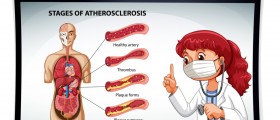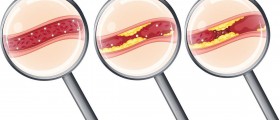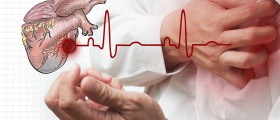
Poor Blood Circulation
Poor blood circulation is a medical condition which develops gradually and may affect many organs and organ systems. Poor circulation is typically related to unhealthy lifestyle choices such as diet rich in fats heavy smoking or alcoholism. All the previously mentioned as well as additional factors such as stress lead to atherosclerosis which is the leading cause of poor blood circulation.
Atherosclerosis is a process in which fatty deposits accumulate on the walls of arteries. They become harder in time and are called plaques. Plaques interfere in normal circulation and disturb normal flow of the blood causing further damage. Formation of plaques lasts rather long. This can be explanation why poor blood circulation commonly affect adults and elderly people. People who suffer from certain medical conditions such as diabetes mellitus are more prone to process of atherosclerosis than healthy people. They often have problems with circulation and in them atherosclerosis may affect each and every blood vessel in the body. The symptoms of poor blood circulation vary a lot depending on the organ which has been affected.
Presentation of Poor Blood Circulation
The brain is supplied with 20 % of all blood. In case of poor blood circulation of the brain the functions of this organ are seriously endangered. People whose brains are not well supplied with blood may be lethargic, have problems with memory and they always lack in mental clarity. Recurrent headaches as well as repeated dizziness may be additional symptoms of improper blood supply to the brain.
As for the heart, poor blood circulation typically features with frequent chest pain especially, if the person is engaged in strenuous activities or exposed to high levels of stress. The problems may even occur during climbing stairs or walking and this only points to higher degree of poor blood circulation.
Poor circulation of the liver features with loss of appetite and unexplained weight loss. The liver cannot function properly and it affects the whole of the body.
Poor circulation of the kidneys reflects in edema, high blood pressure and changes in heart rate. Fatigue is common as well. Improper supply of the kidneys with blood results in improper excretion of the toxins from the body.
Arms and legs can be also deprived of proper blood supply. Poor blood circulation of extremities can cause intensive symptoms. Patients complain about numbness of hands, feet and fingers. They also suffer from leg cramps. Their arms and especially legs may be cold.
Poor blood circulation can also affect sex drive and lead to impotence.







_f_280x120.jpg)









Your thoughts on this
Loading...